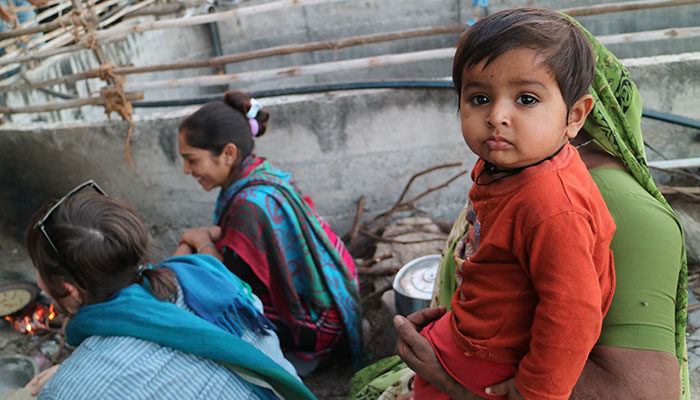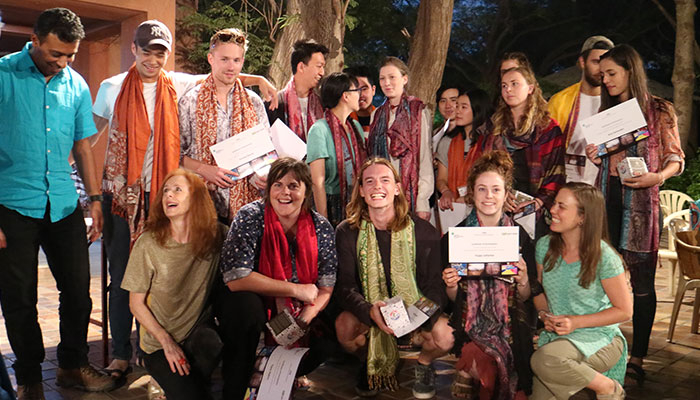Student stories
The Humanitarian Design Summit: Everything I was expecting and more.
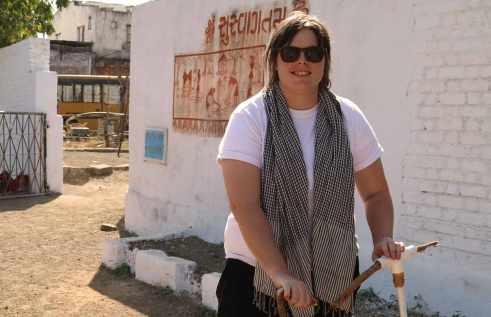
Tiana Hokins is currently studying a Bachelor of Humanitarian and Community Studies online whilst raising a newborn baby. Through Charles Darwin University she was given the opportunity to attend the Engineers Without Borders Humanitarian Design Summit in India and describes it as one of the most amazing experiences she has had to date. Here’s her story.
I decided to study with CDU as the Humanitarian and Community Studies degree aligned with where I am currently in my career and is a fantastic stepping stone to my future career and lifestyle goals. I chose to study online as it’s flexible and suits my current lifestyle. I was at first dubious about studying online, but have found the staff at CDU to be a great support. I currently work in the community sector as a Youth Development Coach, helping to get disadvantaged youth into meaningful education and employment. Sometimes it can be a challenge trying to get the balance right; it can test my motivation when coming home from a big day at work, turning on the computer and putting in another few solid hours.
I’m really looking forward to the intensive component (Introduction to Humanitarian Practice) and the requirement to complete a national or international placement.
I’m enjoying studying this degree as the content within this course is great and I’m really looking forward to the intensive component (Introduction to Humanitarian Practice) and the requirement to complete a national or international placement. I’ve also gained transferable skills that have helped me develop further in my line of work. However my dream is to run an NGO in Asia.
So far the most enjoyable aspect of this course has been the opportunity to attend the Engineers Without Borders Humanitarian Design Summit. It has been by far one of the most amazing and rewarding experiences I have had to date. It gave me the opportunity to “get my hands dirty” in the field that I want to work in. When the Summit was advertised in one of my Common Units (Design and Innovation: Communicating Technology), it piqued my sense of adventure as well as my thirst for new learning experiences.
I was fortunate to receive one of ten available $3000 New Colombo Plan grants through CDU. This covered most of the cost of the Summit. I also took advantage of the OS-HELP scheme to help pay for flights, visa and other assorted travel costs.
The Summit was everything I was expecting and more. It embodied what this degree is. It is all about the human-centred, strengths-based approach, which is so important when it comes to providing sustainable assistance. The summit has not only cemented my motivation to complete my studies, but has given me a real understanding as to what it takes to live and work internationally.
Their hospitality was humbling. Part of the summit was community consultation and we spent days wandering the village, being taken in by several strangers and drinking copious amounts of chai.
My most memorable experience would have to be when our team stayed in a rural village in the state of Gujurat. We were the first foreigners they had experienced and greeted us in true Indian style of colour, music and dancing. Their hospitality was humbling. Part of the summit was community consultation and we spent days wandering the village, being taken in by several strangers and drinking copious amounts of chai. The village was incredibly sustainable and the fresh produce was delicious. Often they would milk the cows in the courtyard for our tea.
We designed a washing machine mechanism called the ‘Dobi-mate’ (Dobi meaning washer woman in Gujurati). We saw that there was an opportunity to improve the efficiency of the laundry process. It took two women up to two hours daily to laboriously wash their family’s clothing at the well. We used affordable, recyclable and accessible items to come up with a mechanism that can be duplicated and adapted to each person’s needs. We were able to present this to the community, which was well received. If used, this will free up women’s time to do more enjoyable tasks or to raise more income for their children’s education.
Did you know that you can study the unit Design and Innovation: Communicating Technology across various degrees through the Common Unit Program? To find out more about the unit and the opportunity to attend the Engineers Without Borders Humanitarian Design Summit contact the Unit Coordinator.
Find out more about the Bachelor of Humanitarian and Community Studies.
Trying to find a course?
Related Articles
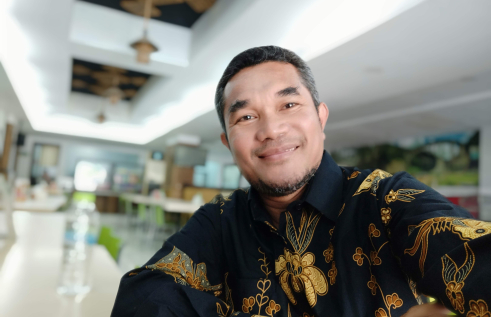
Mohammad dreams of building disaster-resilient communities
Read more about Mohammad dreams of building disaster-resilient communitiesMohammad dreams of developing disaster-resilient communities in Indonesia, so he began his search for a Higher Degree by Research and was granted an Australia Awards Scholarship. His research could make a big impact on small islands threatened by a host of natural disasters.
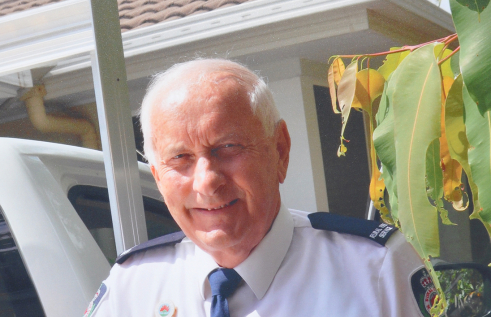
Age is no barrier to making an impact in emergencies
Read more about Age is no barrier to making an impact in emergenciesMeet the emergency services veteran who, at 80, went to university to consolidate a lifetime of on-the-job learning and help shape the future direction of emergency management.
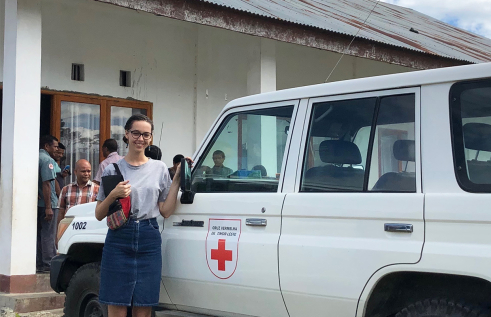
Theory in action: Stephanie's overseas placement
Read more about Theory in action: Stephanie's overseas placementIn her final year of a Bachelor of Humanitarian and Community Studies, Stephanie completed a student placement with the Red Cross in Timor-Leste. She reflects on the placement – and dissects why it was such a formative personal, professional, and academic experience.
